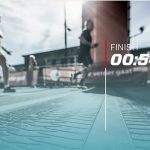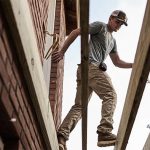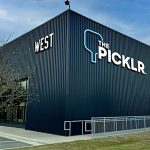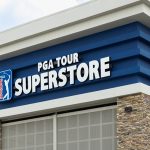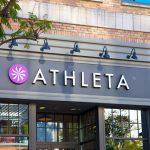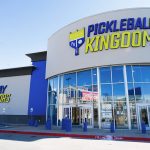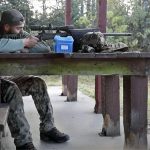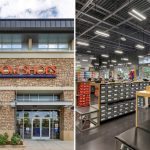The Bush Administration, the ACLU, the AFL-CIO, European entities, and dozens of media organizations have joined forces in urging the U.S. Supreme Court to reaffirm the First Amendment right to free and open debate and to overturn an unprecedented California state court ruling that severely restricts the ability of businesses and other organizations to speak out on matters of public importance.
Their views supporting Nike’s legal position regarding free speech were expressed in a series of amicus (“friend of the court”) briefs filed Friday evening in the case captioned, Nike v. Kasky. The filings, which included those of a vast array of businesses and associations, followed an announcement by the U.S. Supreme Court in January that it would review the 4-3 ruling by the California court.
In May 2002, the California Supreme Court held that because a company’s public statements about its operations might persuade consumers to buy its products, those statements must be treated as run-of-the-mill commercial speech, thereby warranting severely limited constitutional protection. That is the case, even when those statements appear in news stories, op-eds, press releases or on websites published anywhere in the world that reach California.
The California court also held that it did not matter whether the speaker made an inadvertent mistake or whether no one, like the plaintiff in this case, had claimed any injury. The court did not conclude, however, that Nike had made any misstatements but left that issue to be resolved in a trial.
Warning of the dangers of the lower court ruling, the U.S. Government wrote, “California’s apparently unique provision that a private party may sue for misrepresentation — even though the party did not reasonably rely on the statement, did not make a purchase, and was not injured in any way — has the capacity to chill protected speech.”
The Government said that the Court “should rule that the First Amendment bars private suits, such as [this one], that challenge the truthfulness of representations that caused the plaintiff himself no harm.” It further explained that Nike’s legal position does not undermine the government’s existing authority to regulate false, deceptive or misleading speech.
Also, siding with Nike, the American Civil Liberties Union said, “[W]e strongly believe that the dispute over Nike’s overseas labor practices should be resolved through public debate and not in a courtroom.”
“Nike’s interest in telling its side of the story in a nationwide debate,” continued the ACLU, “is no less entitled to full First Amendment protection than statements made by those who have leveled charges critical of Nike’s employment practices.”
In addition to the ACLU and the government, the AFL-CIO weighed in. Although it declined to expressly support either side, it urged that the California decision be overturned, writing that its own criticism of Nike’s labor practices and Nike’s responses are a public exchange that “is … and should be, an open free speech debate under the First Amendment and not one subject to legal regulation under the commercial speech doctrine.” It further noted that Nike’s “public statements are not the only word or the last word but rather are part of a continuing dialogue, and, indeed, serve as a catalyst for that dialogue.”
“Nike’s withdrawal under legal pressure from the dialogue about the labor conditions at its production facilities serves both to diminish the sources of public knowledge about that matter and to frustrate the debate itself,” concluded the organized labor group, which was among more than 60 parties that registered their views with the court.
Reiterating an earlier position, a group of 40 media entities including the New York Times Company, CNN, the Washington Post Company, and CBS argued that business representatives will be deterred from speaking to the press about a vast array of public issues, unless the California decision is overturned. They wrote “[t]his chilling effect will deprive the public of access to important news stories and the clash of competing view points that undergirds the First Amendment.”
“Extending the definition of commercial speech … to include corporate statements about publicly debated business operations is not only misguided, but it also is unnecessary,” wrote the media outlets, which had earlier urged the Court to hear the case. “[W]hen a business practice becomes a matter of public concern, the media scrutinize corporate speech and typically place potentially misleading statements into context, thereby providing timely and corrective information.”
In its own brief, Nike argued that its statements do not constitute so-called “commercial speech,” which the Supreme Court has defined as such “speech that does no more than propose a commercial transaction.”
At the same time, Nike reaffirmed its recognition of the power of consumer protection laws and the regulators who enforce them to ensure that consumers are not misled about the products they buy. Responsible corporate communication, Nike explained, benefits consumers by ensuring that they receive information that is both complete and accurate.
Emphasizing that point, European entities argued that the lower court decision “operates in direct derogation of existing and developing law and policy in the European Union because it discourages the corporate transparency regarding social, ethical and environmental issues that the European Union has made a centerpiece of its support for socially responsible investing and corporate operational activities.”
Laurence Tribe, Harvard University’s noted constitutional scholar and leading Supreme Court advocate, and former acting Solicitor General Walter Dellinger, head of the Supreme Court practice at OMelveny & Myers, LLP, are leading Nike’s legal efforts.
“A speaker who lives in constant fear of lawsuits will never have the confidence to speak in the first place,” said Tribe.
“No company should feel impeded from engaging in the marketplace of ideas just because they operate in the marketplace of goods,” added Walter Dellinger.

